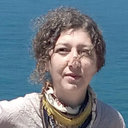[Granular-cell tumor: a rare variant of mammary tumor].
关键词
抽象
BACKGROUND
Granular cell tumor (GCT) is a rare variant of mammary tumor beset with diagnostic dilemmas that may be resolved by using numerous, very complex, enzymohistochemical and immunohistochemical methods.
METHODS
We reported three female patients 16, 21 and 65 years old, operated on for mammary tumor at the Surgical Clinic of the School of Medicine in Nis, over the period of thirty years, 1977 to 2007. During this period 14.022 mammary tumors were diagnosed, including these three cases. These tumors had benign characteristics, without associated tumors in other localizations. A typical histological feature of GCT was a granular cytoplasm in large ovoid cells, organized like nests or like a trabecular arrangement. The tumors were analyzed by sets of histochemical, enzymohistochemical, immunohistochemical methods as well as ultrastructural examination. Protein, S-100 neuron-specific enolase and vimentin expressed a diffuse and intensive immunohistochemical activity, while expression of estrogen and progesterone receptors, as well as HER-2 oncoprotein was negative. The ultrastructural analysis confirmed that the tumor cells were enriched by lysosomes and consequential disorganization of cytoplasm.
CONCLUSIONS
The reported enzymo- and immunohistochemical combined methods provide a precise diagnosis and confirm the GCT's neural origin, which has been disputed for years.



